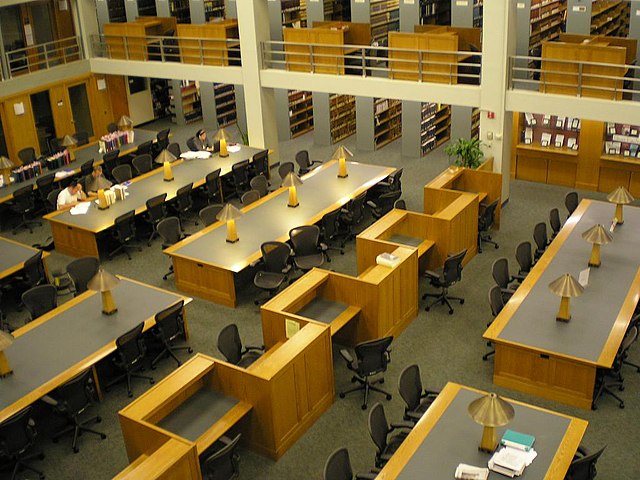A law library is a special library used by law students, lawyers, judges and their law clerks, historians, and other scholars of legal history in order to research the law. Law libraries are also used by people who draft or advocate for new laws, e.g. legislators and others who work in state government, local government, and legislative counsel offices or the U.S. Office of Law Revision Counsel and lobbying professionals. Self-represented, or pro se, litigants also use law libraries.
Leo T. Kissam Memorial Library, the law library of the Fordham University School of Law, also a federal depository library
The interior of the Law Library of the Supreme Court of Victoria
The stacks inside a typical university law library (Willamette University College of Law Library)
The Iowa State Capitol Law Library
A special library is a library that provides specialized information resources on a particular subject, serves a specialized and limited clientele, and delivers specialized services to that clientele. Special libraries include corporate libraries, government libraries, law libraries, medical libraries, museum libraries, news libraries. Special libraries also exist within academic institutions. These libraries are included as special libraries because they are often funded separately from the rest of the university and they serve a targeted group of users.
Group tours the nonprofit Foundation for Economic Education library, best known for Austrian economics collections
Interior of the Victorian Parliamentary Library in Parliament House, Melbourne






